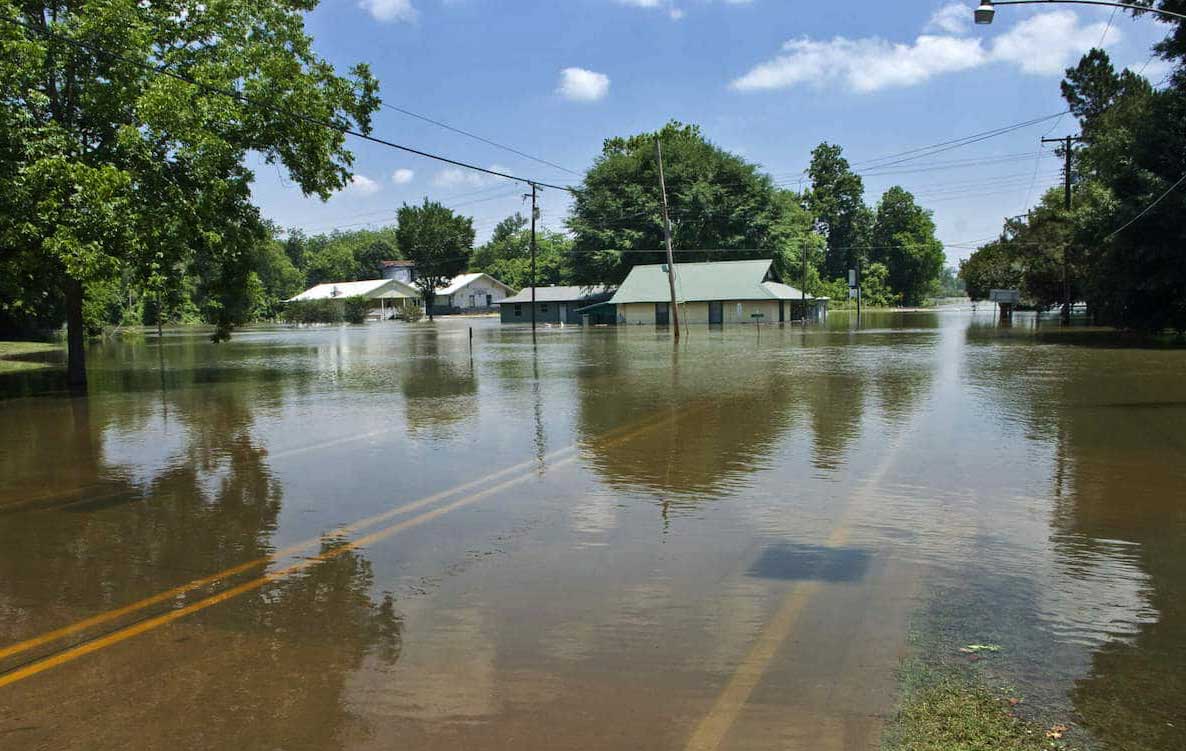Georgia lacks a specific statute directly dealing with landlords’ obligations regarding mold. However, it enforces rules related to flooding and the subsequent damages, which may include issues related to mold.
According to Georgia State laws, the owner who intends to rent a property for residential occupancy must give the prospective tenant a written notification of the property’s propensity of flooding (Ga. Code Ann. § 44-7- 20).
This must be done if the flooding has damaged any portion of the living space at least three times in the previous five years.
If the landlord fails to give such notice prior to the written lease agreement must be liable in tort to the tenant and the tenant’s family residing on the leased premises for damages to the lessee’s personal property.
What we cover
ToggleMold disclosure law in Georgia State
Georgia State doesn’t have any statutes or regulations that require landlords to disclose concentrations of mold in rental properties to prospective tenants. However, Georgia landlords must let prospective tenants know if flooding has caused damage (including mold) to the living space.
Aside from any affirmative disclosure requirements, the landlord should be ready to answer the question of the potential buyers about plumbing, humidity, and ventilation issues on all premises.

Deducting mold-related costs
If the landlord wants to deduct the cost of cleaning the mold, if a departing tenant causes the mold, it can be done from the tenant’s security deposit.
To do this, the landlord has to provide a written explanation to the tenant of mold damage costs within one month of the tenant’s lease termination. If the amount exceeds the security deposit, the landlord must remainder the deposit to the tenant along with the written documentation of damage deductions.
Resource: Full list of states mold laws
Tenant’s self-helping strategies in Georgia
Two common legal self-helping strategies are recognized by courts in Georgia that tenants can pursue following a mold outbreak in the apartment, rent withholding and “repair and deduct”.
Rent withholding
This is when tenants decide to stop paying rent, claiming the mold has made their apartment uninhabitable. Regardless of what may appear in a written lease with tenants, landlords in Georgia are bound by the “implied warranty of habitability”, doctrine that requires providing tenants with apartments in livable condition.
Repair and deduct
A strategy known as “repair and deducts” implies tenants taking care of mold clean-up on their own and then subtracting the cost from their rent.
Georgia’s state law has not codified these strategies, but Georgia’s courts have recognized a tenant’s right to repair and deduct.
What is a Mold Addendum?
The Mold Addendum will emphasize the importance of avoiding mold and mildew and also places the responsibility and liability on the tenant for damages and expenses resulting from mold and mildew neglect. Signing this form in addition to the lease will place a duty upon your new tenant to protect your property from mold. The following points are often included in a Mold Addendum:
- Maintaining the rental free of dirt, debris, and moisture that can harbor mold;
- Require reasonable care to close all windows and other openings to prevent water intrusion;
- Immediately notify the landlord of any significant mold growth.
What to do when there is a mold outbreak in the rental?
There are a few steps that need to take in case of mold in order to protect yourself and others who live in the particular residential unit:
Examine the lease
Examine the rental agreement to determine who is responsible for maintenance and give the landlord a written notice about your concerns. If it turns out that the mold growth is a result of negligence on behalf of the landlord or faulty construction, you will need to ask for a remedy from the landlord.
Get familiar with the law
The lack of specific laws in Georgia State that directly points out the landlord as responsible for the ongoing maintenance and repairs of the apartment does not mean their amnesty from responsibility. Landlords are bound by a statutory duty to maintain the premises and provide tenants with a habitable residence.
Use the power of conversation
A win-win situation is when the tenant and landlord communicate and resolve the issue. If you find that is not the case, you need to seek legal representation. In Georgia, there is no governmental agency that has the power to intervene in a dispute between a landlord and a tenant.
What to do if the landlord doesn’t act properly?
If the landlord doesn’t take steps to remove the mold, the tenant can take care of the mold clean-up and subtract the cost from the future rent.
Keep in mind that you should never stop making rent payments until consulting an attorney because this course of action will likely lead to eviction and could result in various other disputes and legal problems.












